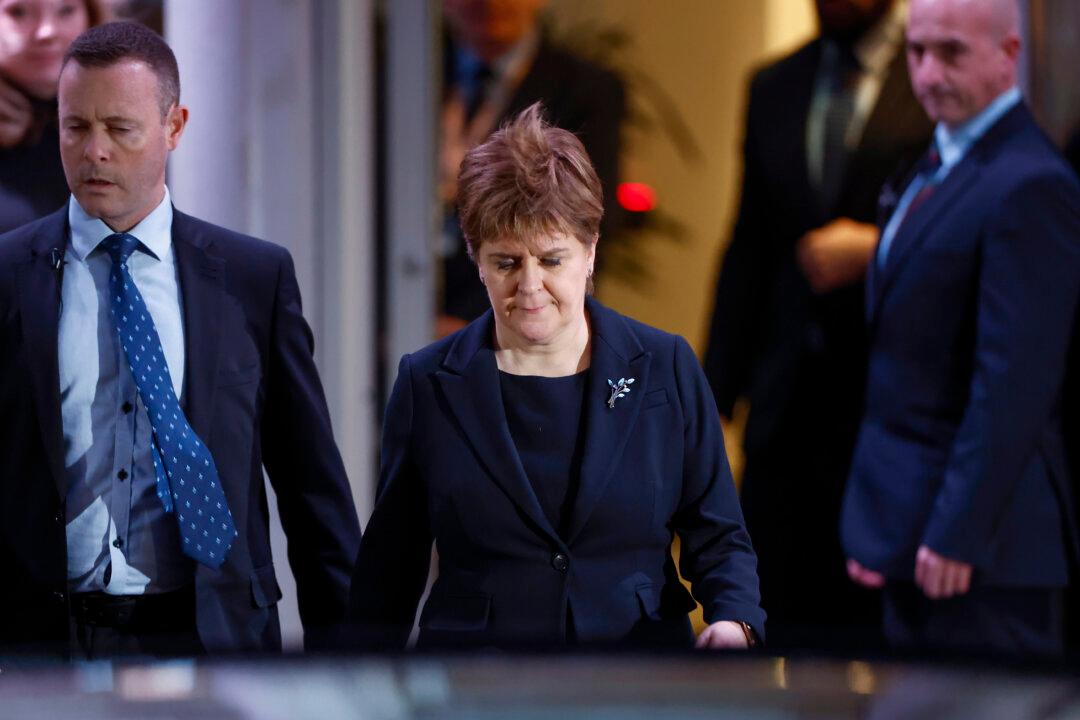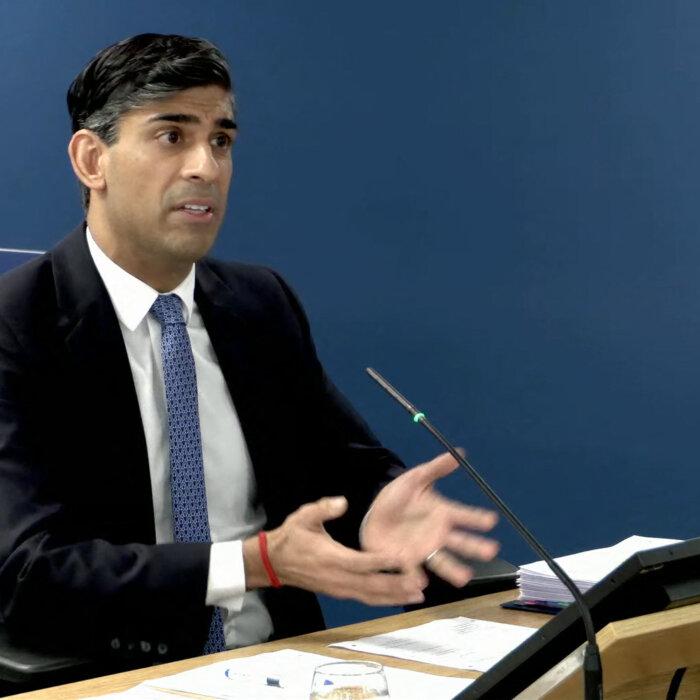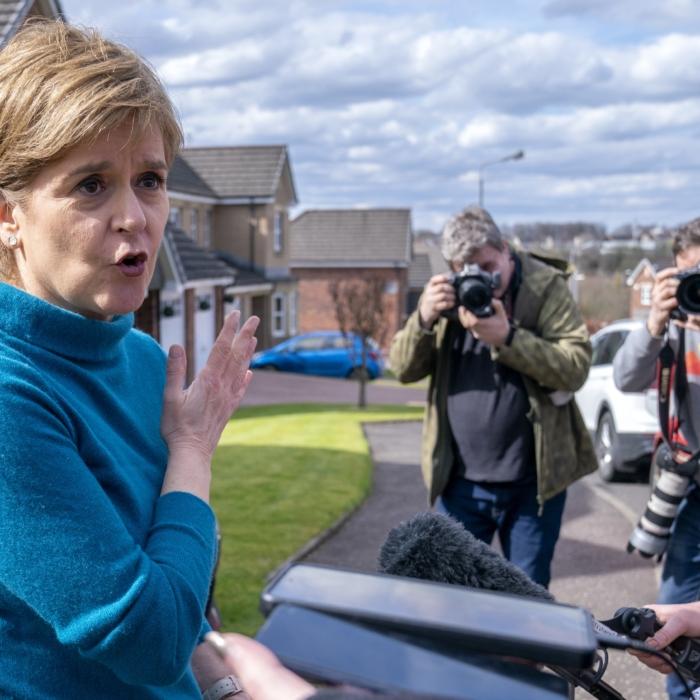Former Scottish First Minister Nicola Sturgeon gave evidence at the UK COVID-19 Inquiry in Edinburgh on Wednesday, denying she used WhatsApp to make policy decisions, but admitting that she had deleted messages.
Initially, when asked by barrister Jamie Dawson, KC whether she had deleted messages, Ms. Sturgeon said she “did not retain them.” Pushed as to whether she was making a distinction between “deletion” and not retaining something, she agreed she had deleted them, and said this was owing to security concerns.
She said she deleted the messages, “In line with advice I had always been given, which was not to retain conversations like that on a phone that could be lost or stolen.”
“During the pandemic I did not make extensive use of informal messaging and certainly did not use it to make decisions,” she told the inquiry, which is chaired by Baroness Hallett.
Ms. Sturgeon, who stepped down as first minister last February, said she used “informal” communication methods “very rarely and not to discuss issues of substance or anything that could be described as decision-making.”
She agreed that she authorised “burner” phones—a term often used by criminals for an additional device that is not someone’s primary number and is not intended for long-term use—being put on parliamentary expenses.
“I didn’t personally purchase them, they were also not for use by me. Many MSPs I believe did the same when the pandemic started,” she said.
Review Into Use of Mobile Messaging
Current First Minister Humza Yousaf gave an “unreserved” apology for the Scottish Government’s “frankly poor” handling of requests for WhatsApp messages during his evidence last week, announcing an external review into the government’s use of mobile messaging.A statement from the Scottish Government said: “As the First Minister outlined, he has commissioned an externally-led review into the use of mobile messaging apps and non-corporate technology in the Scottish Government.
“This will take particular account of government interaction with statutory public inquiries.
“During this period, we will continue to keep our records management policy under review in line with legislation. The external review will inform a wider internal records management policy review. More detail on the external and internal reviews will be given in due course.”
The inquiry—and the media’s coverage of it—has been criticised for the focus on WhatsApp messages, especially the multiple reports of colourful language and lurid insults thrown about with casual abandon in the messages between ministers and other officials while the country was plunged into crisis.
Former Prime Minister Boris Johnson and his ministers faced criticism for their use of the WhatsApp platform after his claim before the inquiry that he had “lost” around 5,000 such messages from the first six months of 2020.
Pressed on this, Mr. Johnson told the inquiry on Dec. 6, “I don’t know the exact reason, but it looks as though it’s something to do with the app going down and then coming up again, but somehow automatically erasing all the things between that date when it went down and the moment when it was last backed up.”
Mr. Johnson said he could not remember if he had performed a factory reset of his phone, and said he was unsure what exactly that meant.
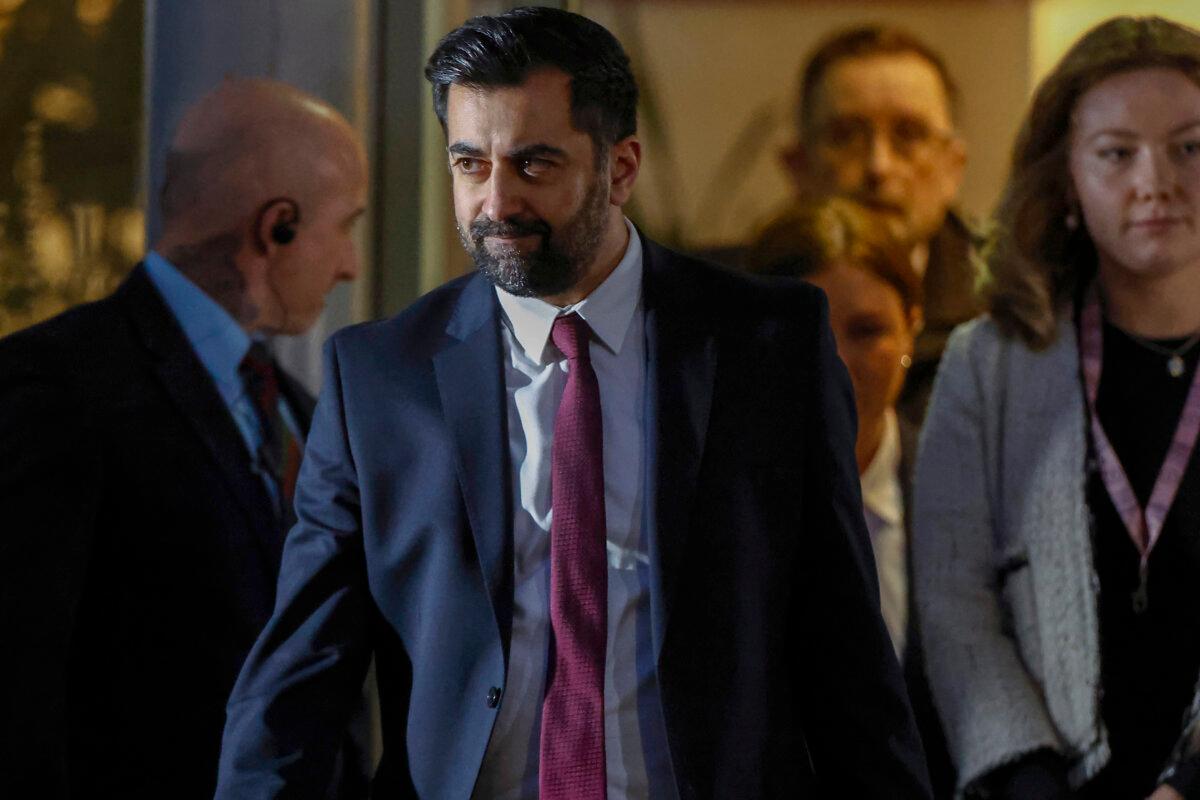
Inquiry Criticised
Lockdown critics have accused the inquiry of having a “pre-determined outcome” that the country ought to have been locked down harder, sooner, and for longer without properly considering whether there was a better alternative, such as the lockdown-free Swedish approach of very light restrictions.A spokesman for the inquiry has rejected the notion that the findings have already been decided and pointed to the fact that evidence of lockdown harms will be heard, especially as part of the children’s module.
The inquiry began in June 2023 and is expected to run until 2026. It faced criticism after the section examining the vaccine rollout was postponed from the coming summer, with no date given for when it will take place.
Scotland has its own separate COVID-19 inquiry which is not sitting at the moment as the UK-wide one concludes a two-week interlude in Edinburgh as part of its examination into how the devolved governments handled the pandemic.
Ms. Sturgeon, who was heckled on her way in to the inquiry, said her biggest regret was not locking the country down sooner than she did in March 2020.
She said, “Of the many regrets I have, probably chief of those is that we didn’t lock down a week, two weeks, earlier than we did.”
She denied making decisions for political reasons, such as to further the cause of Scottish independence, claiming she had not “thought less” about her politics than during the lockdown era.
“If I had at any point decided to politicise a global pandemic that was robbing people of their lives and livelihoods and educational opportunities, and had decided in the face of that to prioritise campaigning for independence, then, yes, it absolutely would have been as you described,” Ms. Sturgeon told Mr. Dawson in an exchange where he questioned her motivations.
“Which is precisely why I didn’t do it—I wouldn’t have done it. I was motivated solely by trying to do the best we could to keep people as safe as possible,” she said.
“We did that to some extent, but not to—and perhaps we never could have done it—to the extent I would have wished we could have done. I carry the regret for the loss of life, the loss of opportunity, the loss of education of our young people, I carry that with me every single day.”
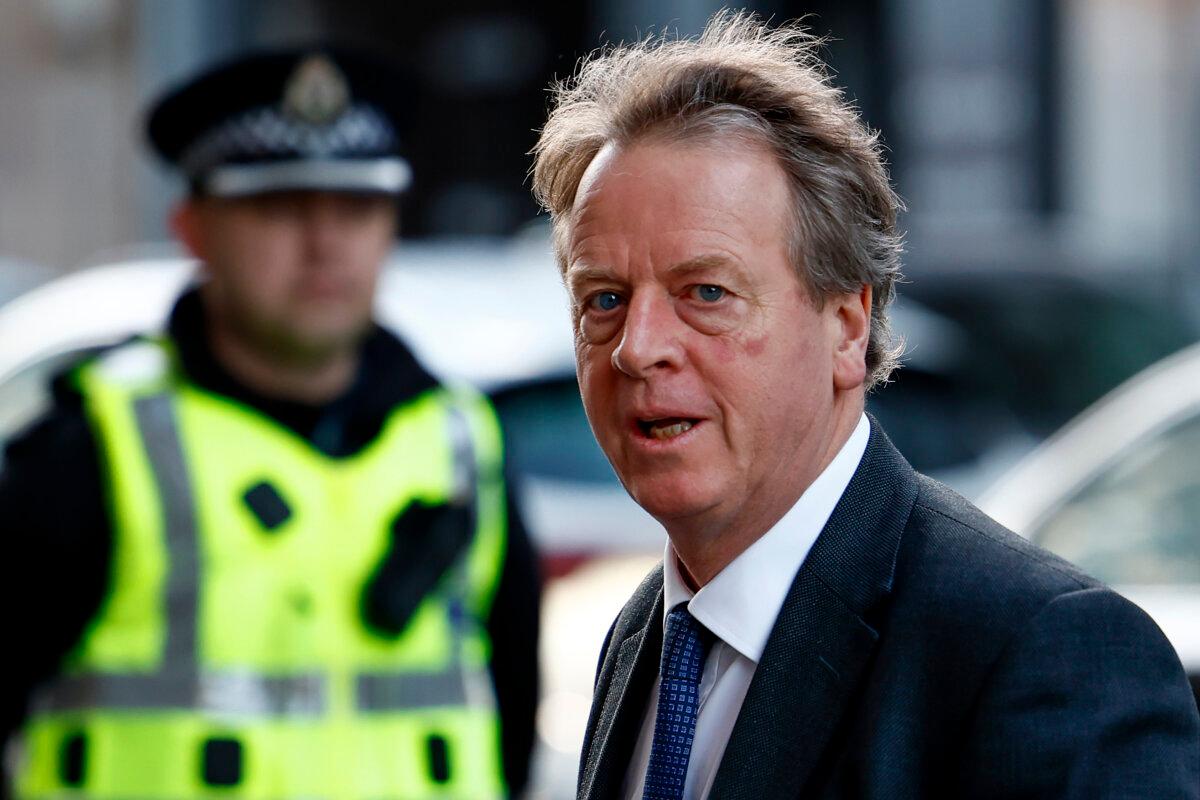
‘Sturgeon Could Cry From One Eye’
However, appearing after Ms. Sturgeon at the inquiry on Thursday, the UK government’s Scottish Secretary Alister Jack accused her of play-acting and said he did not believe that she had not sought to make the most of the situation.“I watched that evidence from yesterday and I didn’t believe it for a minute,” he said.
“I think Nicola Sturgeon could cry from one eye if she wanted to.”
He added it was “inevitable there would be tensions” between the Scottish and UK governments given their different positions on the union.
“The then first minister [Ms. Sturgeon] saw her job as leader of a nationalist government to break up the UK.
“Devolution works very well but works very well when both governments want to work together. But when one government wants to destroy the UK and destroy devolution, then there are tensions.”
Ms. Sturgeon appeared emotional at several points during her evidence, including when she said she sometimes wished she had not had the responsibility she did.
“I was the first minister when the pandemic struck. There’s a large part of me that wishes that I hadn’t been.
“I wanted to be the best first minister I could be.”
Ms. Sturgeon stepped down before she and her husband Peter Murrell were arrested and questioned by the police last year as part of Scotland’s Operation Branchform inquiry into possible fundraising fraud in the SNP. She denied any wrongdoing and the pair were released under investigation with no charges being brought.
